Similar to the Via Crucis (the Way of the Cross), the Via Lucis (the Way of Light) is composed of 14 stations that highlight various episodes in the Gospels that occur after the Resurrection of Jesus.
The Via Lucis is a growing devotion of contemplation, noted by the Catholic Church in the Directory on Popular Piety and Liturgy(n. 153, December 17, 2001).
“For centuries the Via Crucis involved the faithful in the first moment of the Easter event, namely the Passion, and helped to fix its most important aspects in their consciousness. Analogously, the Via Lucis, when celebrated in fidelity to the Gospel text, can effectively convey a living understanding to the faithful of the second moment of the Pascal event, namely the Lord’s Resurrection,” the Holy See explains in the official document.
“The Via Lucis is potentially an excellent pedagogy of the faith, since ‘per crucem ad lucem.’ Using the metaphor of a journey, the Via Lucis moves from the experience of suffering, which in God’s plan is part of life, to the hope of arriving at man’s true end: liberation, joy, and peace, which are essentially paschal values.”
We offer here the Gospel passages of the 14 stations of the Via Lucis, illustrated by some of the greatest artists of all time.
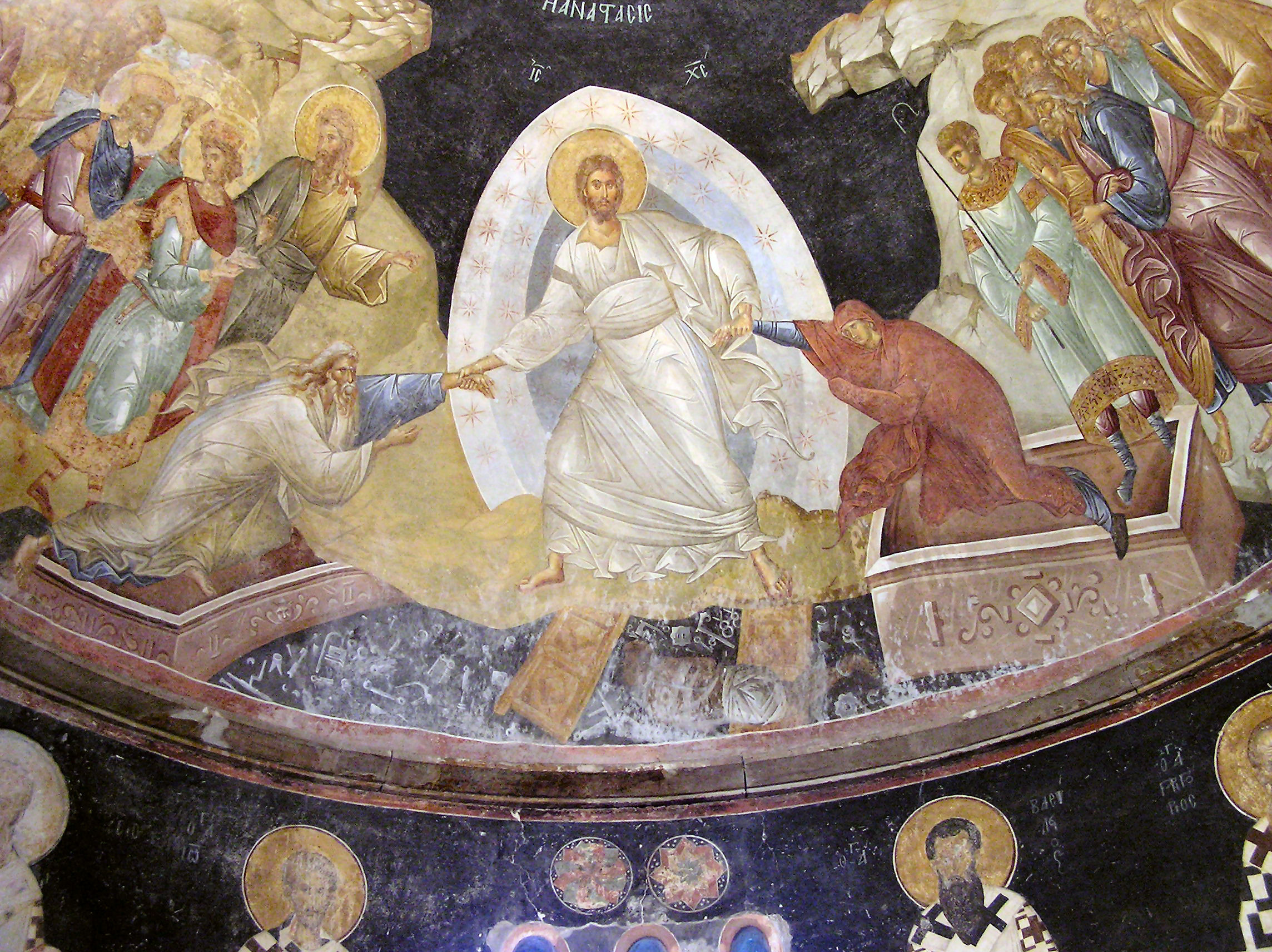
First station
Jesus rises from death
From the Gospel according to Mathew (Mt 28,1-7)
Now after the Sabbath, toward the dawn of the first day of the week, Mary Magdalene and the other Mary went to see the sepulchre. And behold, there was a great earthquake; for an angel of the Lord descended from heaven and came and rolled back the stone, and sat upon it. His appearance was like lightning, and his raiment white as snow. And for fear of him the guards trembled and became like dead men. But the angel said to the women, “Do not be afraid; for I know that you seek Jesus who was crucified. He is not here; he has risen, as he said. Come, see the place where he lay. Then go quickly and tell his disciples that he has risen from the dead, and behold, he is going before you to Galilee; there you will see him. See, I have told you.”
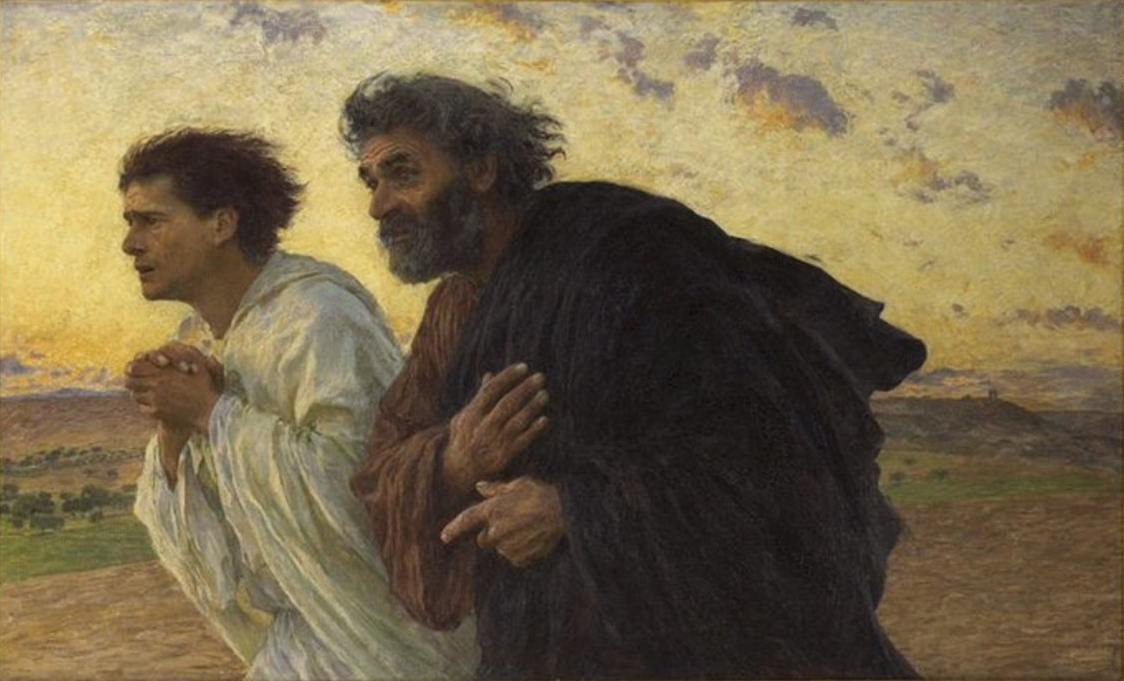
Second station
The disciples find the tomb empty
From the Gospel according to John (Jn 20,1-9)
Now on the first day of the week Mary Magdalene came to the tomb early, while it was still dark, and saw that the stone had been taken away from the tomb. So she ran, and went to Simon Peter and the other disciple, the one whom Jesus loved, and said to them, “They have taken the Lord out of the tomb, and we do not know where they have laid him.” Peter then came out with the other disciple, and they went toward the tomb. They both ran, but the other disciple outran Peter and reached the tomb first; and stooping to look in, he saw the linen clothes lying there, but he did not go in. Then Simon Peter came, following him, and went into the tomb; he saw the linen cloths lying, and the napkin which had been on his head, not lying with the linen cloths but rolled up in a place by itself. Then the other disciple, who reached the tomb first, also went in, and he saw and believed; for as yet they did not know the scripture, that he must rise from the dead.
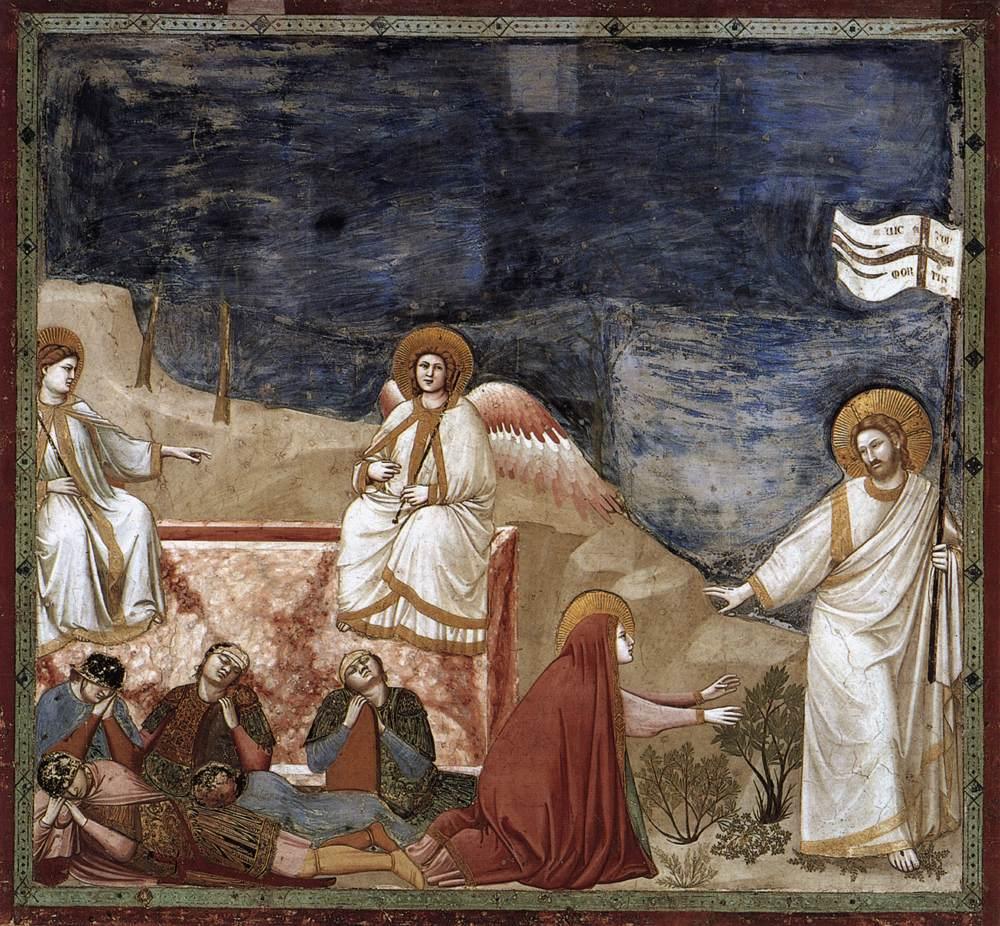
Third station
The Risen Christ appears to Mary Magdalene
From the Gospel according to John (Jn 20,11-18)
But Mary stood weeping outside the tomb, and as she wept she stooped to look into the tomb; and she saw two angels in white, sitting where the body of Jesus had lain, one at the head and one at the feet. They said to her, “Woman, why are you weeping?” She said to them, “Because they have taken away my Lord, and I do not know where they have laid him.” Saying this, she turned round and saw Jesus standing, but she did not know that it was Jesus. Jesus said to her, “Woman, why are you weeping? Whom do you seek?” Supposing him to be the gardener, she said to him, “Sir, if you have carried him away, tell me where you have laid him, and I will take him away.” Jesus said to her, “Mary.” She turned and said to him in Hebrew, “Rabboni!” (which means Teacher). Jesus said to her, “Do not hold me, for I have not yet ascended to the Father; but go to my brethren and say to them, I am ascending to my Father and your Father, to my God and your God.” Mary Magdalene went and said to the disciples, “I have seen the Lord”; ad she told them that he had said these things to her.
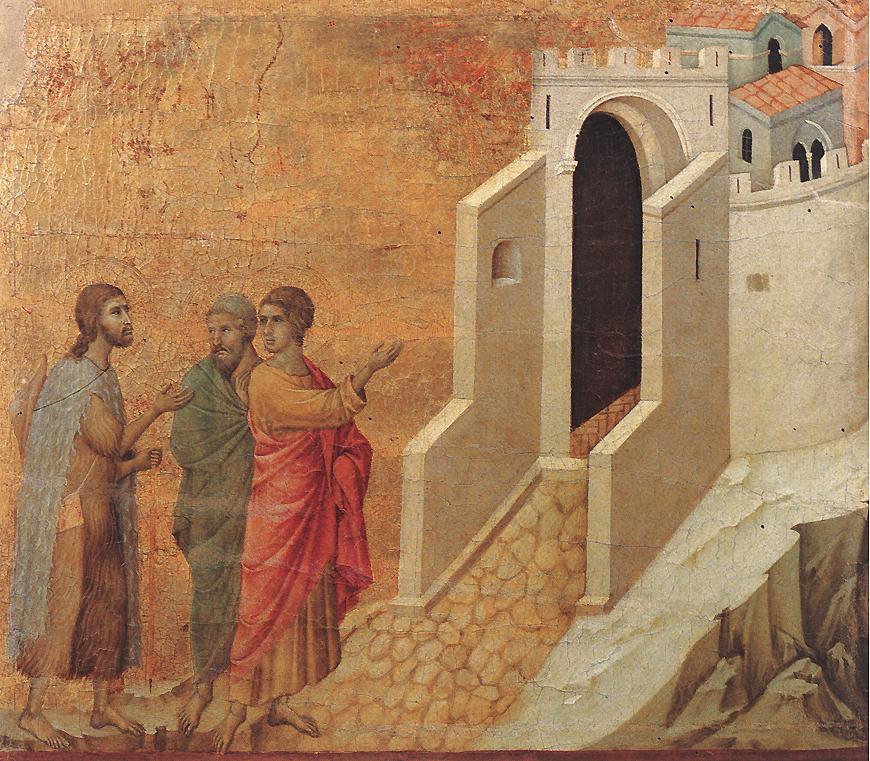
Fourth station
The Risen Christ on the road to Emmaus
From the Gospel according to Luke (Lk 24,13-19.25-27)
That very day two of them were going to a village named Emmaus, about seven miles from Jerusalem, and talking with each other about all these things that had happened. While they were talking and discussing together, Jesus himself drew near and went with them. But their eyes were kept from recognizing him. And he said to them, “What is this conversation which you are holding with each other as you walk?” And they stood still, looking sad. Then one of them, named Cleopas, answered him, “Are you the only visitor to Jerusalem who does not know the things that had happened there in these days?” (…) And he said to them, “O foolish men, and slow of heart to believe all that the prophets have spoken! Was it not necessary that the Christ should suffer these things and enter into his glory?” And beginning with Moses and all the prophets, he interpreted to them in all the scriptures the things concerning himself.
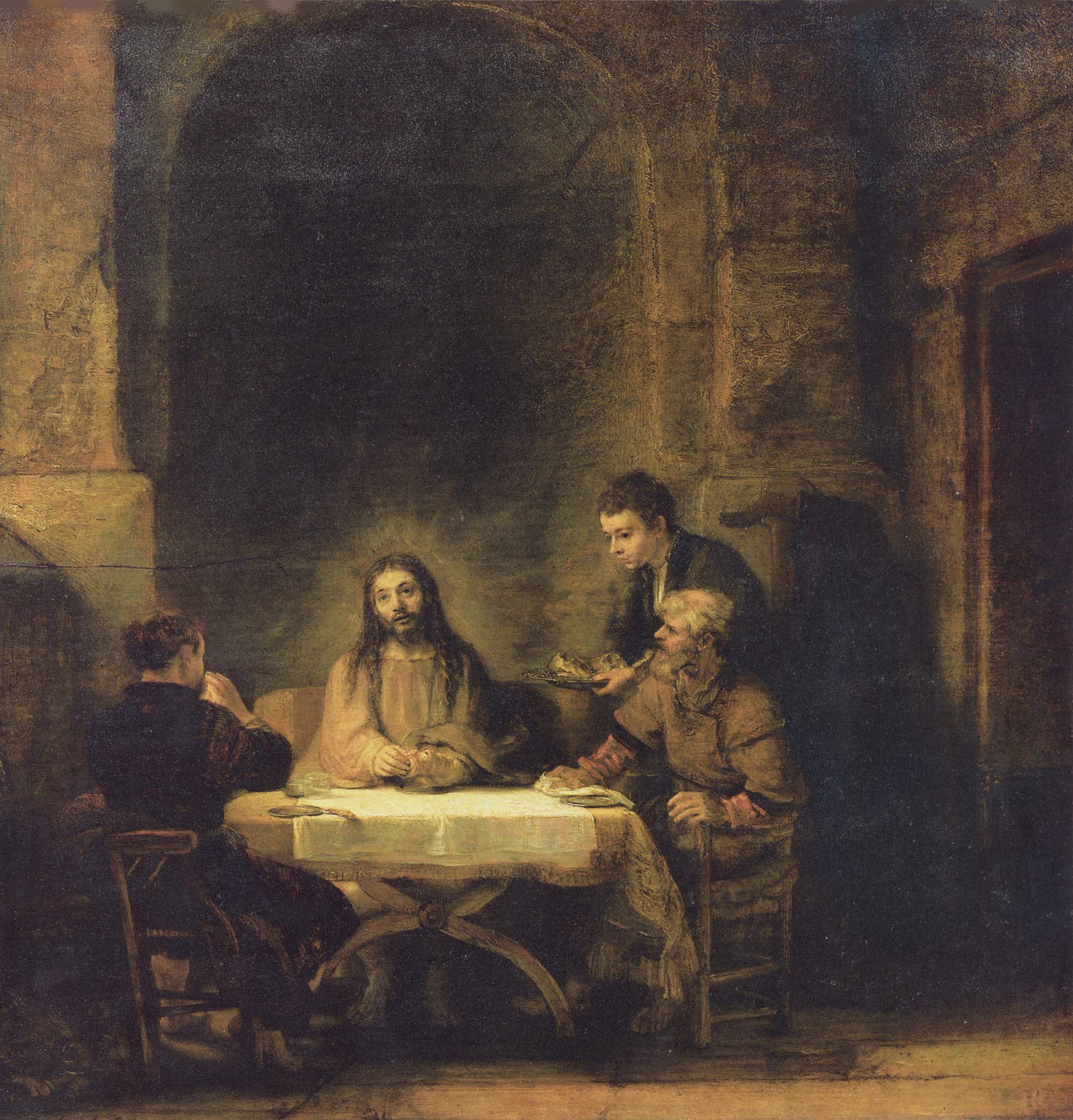
Fifth station
The Christ reveals himself in the breaking of bread
From the Gospel according to Luke (Lk 24,28-35)
So they drew near to the village to which they were going. He appeared to be going further, but they constrained him, saying, “Say with us, for it is toward evening and the day is now far spent.” So he went in to stay with them. When he was at table with them, he took the bread and blessed, and broke it, and gave it to them, And their eyes were opened and they recognized him; and vanished out of their sight. They said to each other, “Did not our hearts burn within us while he talked to us on the road, while he opened to us the scriptures?” And they rose that same hour and returned to Jerusalem; and they found the eleven gathered together and those who were with them, who said, “The Lord has risen indeed, and has appeared to Simon!” Then they told what had happened on the road, and how he was known to them in the breaking of the bread.
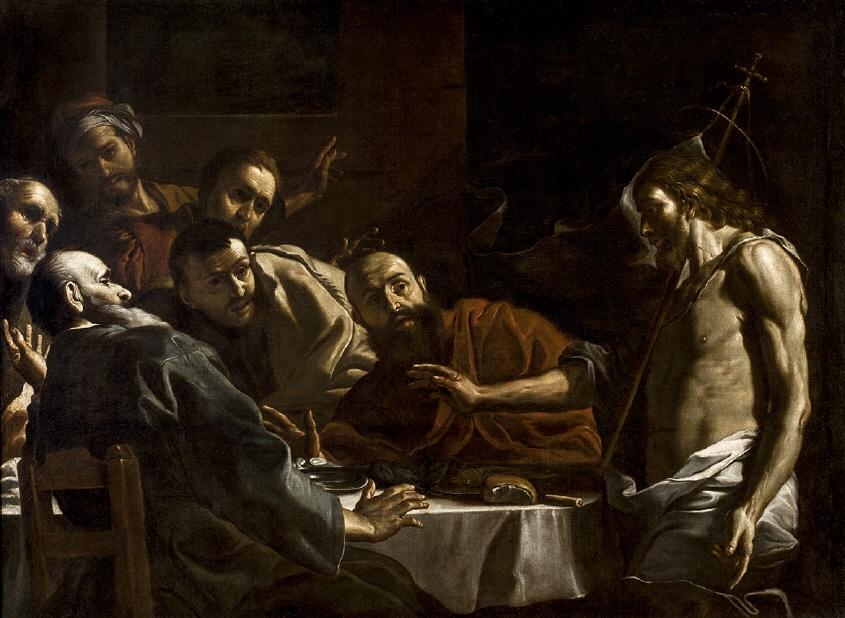
Sixth station
The Risen Christ shows himself alive to the disciples
From the Gospel according to Luke (Lk 24,36-43)
As they were saying this, Jesus himself stood among them. But they were startled and frightened, and supposed that they saw a spirit. And he said to them, “Why are you troubled, and why do questionings rise in your hearts? See my hands and my feet, that it is I myself; handle me, and see; for a spirit has not flesh and bones as you see that I have.” And while they still disbelieved for joy, and wondered, he said to them, “Have you anything here to eat?” They gave him a piece of broiled fish, and he took it and ate before them.
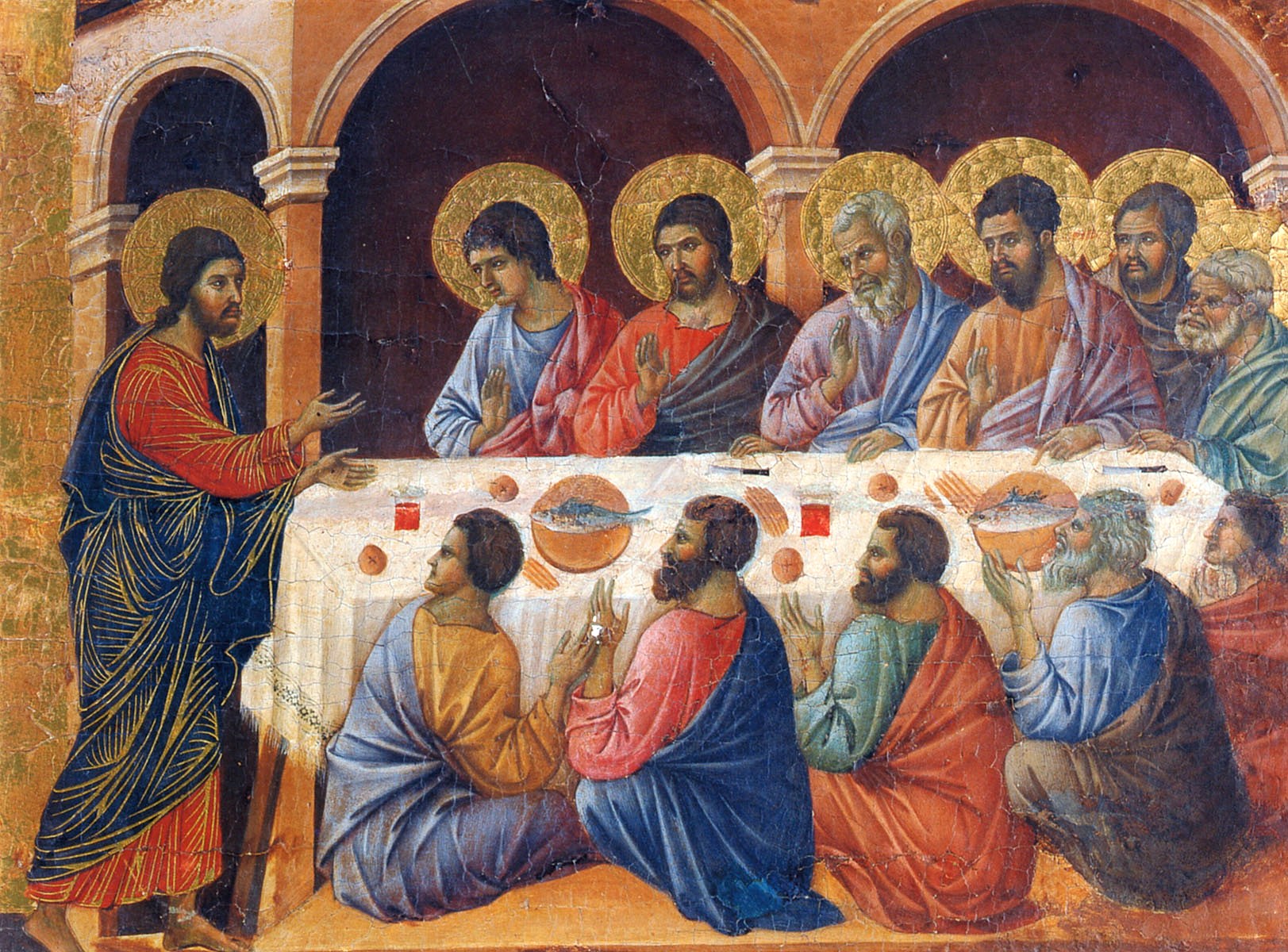
Seventh station
The Risen Christ gives power to forgive sins
From the Gospel according to John (Jn 20,19-23)
On the evening of that day, the first day of the week, the doors being shut where the disciples were, for fear of the Jews, Jesus came and stood among them and said to them, “Peace be with you.” When he had said this, he showed them his hands and his side. Then the disciples were glad when they saw the Lord. Jesus said to them again, “Peace be with you. As the Father sent me, even so I send you.” And when he had said this, he breathed on them, and said to them, “Receive the Holy Spirit. If you forgive the sins of any, they are forgiven; if you retain the sins of any, they are retained.”
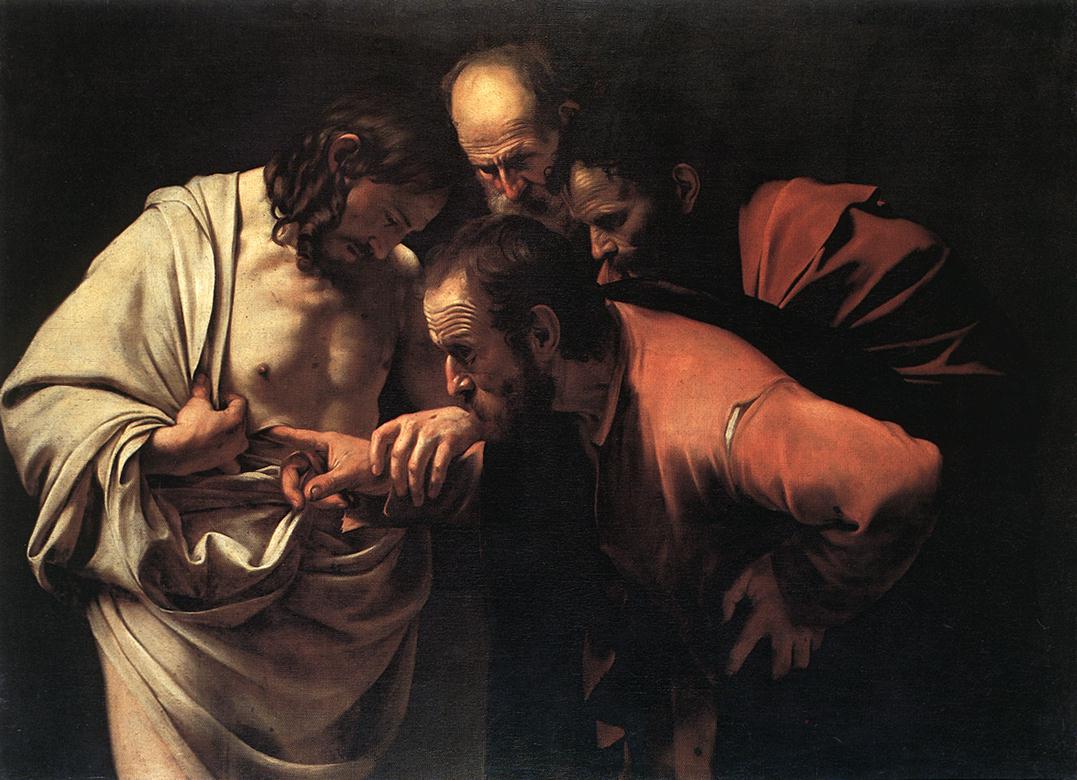
Eighth station
The Risen Christ strengthens the faith of Thomas
From the Gospel according to John (Jn 20, 24-29)
Now Thomas, one of the twelve, called the Twin, was not with them when Jesus came. So the other disciples told him, “We have seen the Lord.” But he said to them, “Unless I see in his hands the print of the nails, and place my finger in the mark of the nails, and place my hand in his side, I will not believe.”
Eight days later, his disciples were again in the house, and Thomas was with them. The doors were shut, but Jesus came and stood among them, and said, “Peace be with you.” Then he said to Thomas, “Put your finger here, and see my hands; and put out your hand, and place it in my side; do not be faithless, but believing.” Thomas answered him, “My Lord and my God!” Jesus said to him, “Have you believed because you have seen me? Blessed are those who have not seen and yet believe.”
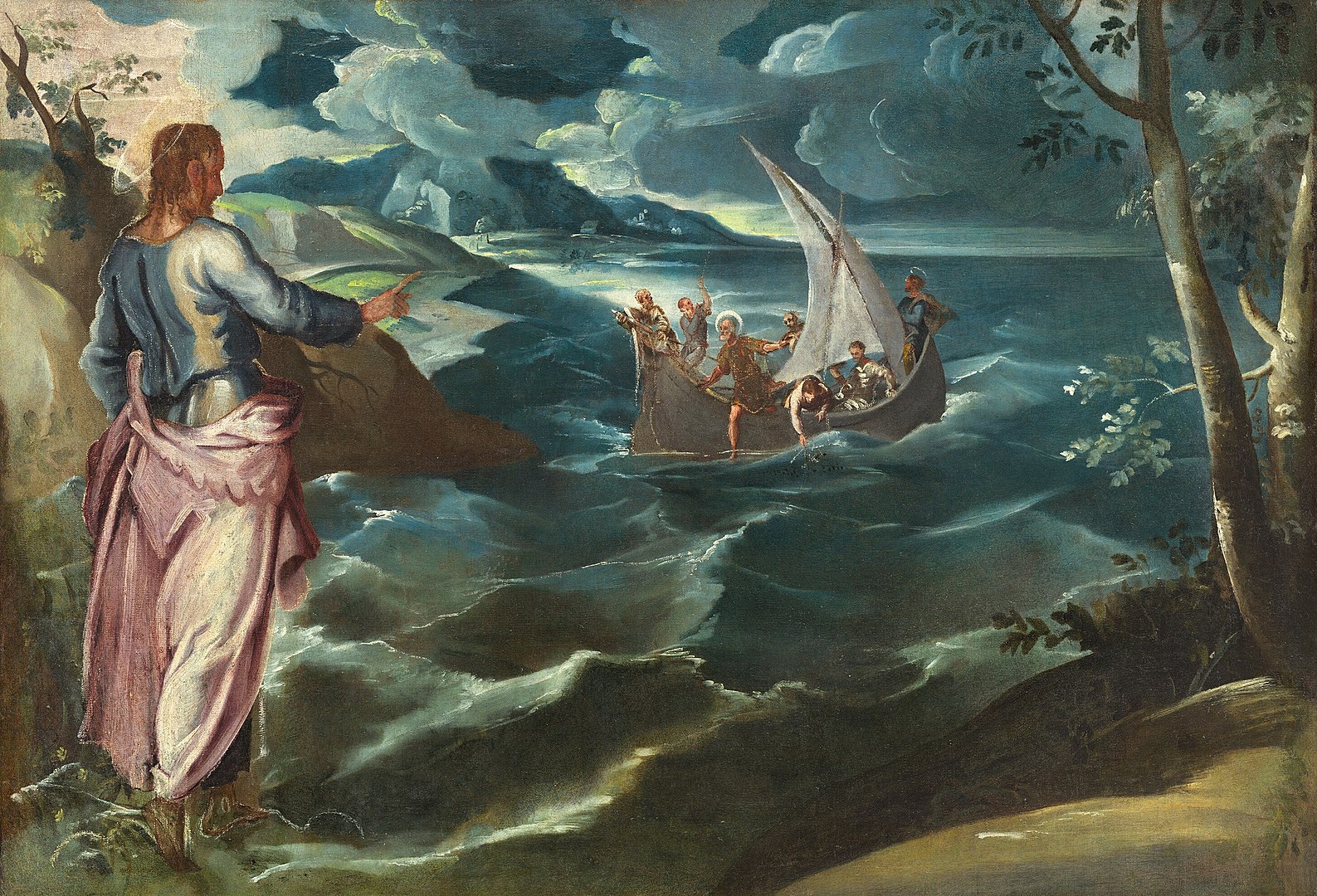
Ninth station
The Risen Christ meets his disciples by the Sea of Tiberias
From the Gospel according to John (Jn 21,1-9.13)
After this Jesus revealed himself again to the disciples by the Sea of Tiberias; and he revealed himself in this way. Simon Peter, Thomas called the Twin, Nathanael of Cana in Galilee, the sons of Zebedee, and two others of his disciples were together. Simon Peter said to them, “I am going fishing,” They said to him, “We will go with you.” They went out and got into the boat; but that night they caught nothing. Just as day was breaking, Jesus stood on the beach; yet the disciples did not know that it was Jesus. Jesus said to them. “Children, have you any fish?” They answered him, “No.” He said to them. “Cast the net on the right side of the boat, and you will find some.” So they cast it, and now they were not able to haul it in, for the quantity of fish. That disciple whom Jesus loved said to Peter, “It is the Lord!” When Simon Peter heard that it was the Lord, he put on his clothes, for he was stripped for work, and sprang into the sea. But the other disciples came in the boat, dragging the net full of fish, for they were not far from the land, but about a hundred yards off.
When they got out on land, they saw a charcoal fire there, with fish lying on it, and bread. (…) Jesus came and took the bread and gave it to them, and so with the fish.
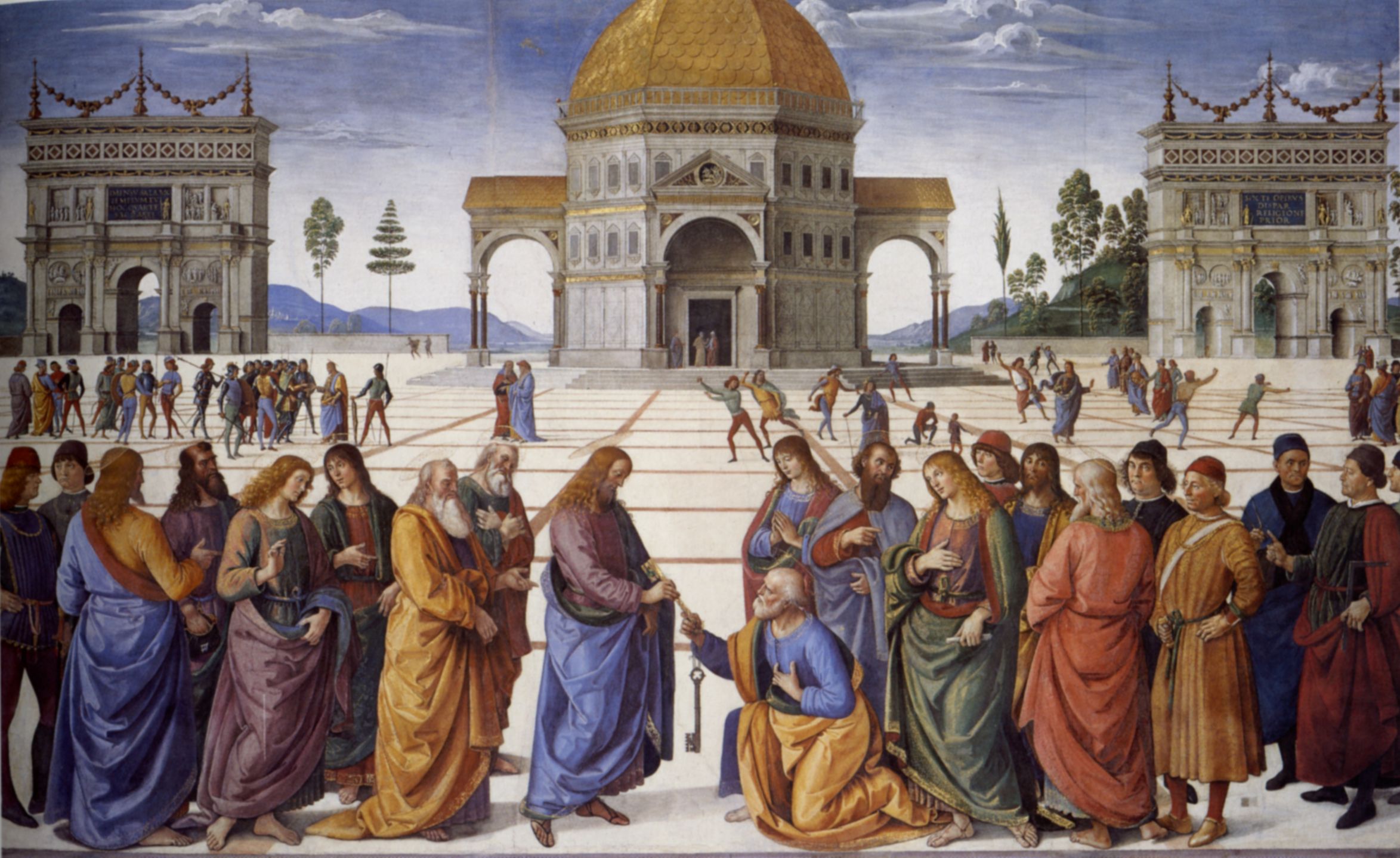
Tenth station
The Risen Christ confers the supremacy upon Peter
From the Gospel according to John (Jn 21,15-17)
When they had finished breakfast, Jesus said to Simon Peter, “Simon, son of John, do you love me more than these?” He said to him, “Yes, Lord; you know that I love you.” He said to him, “Feed my lambs.” A second time he said to him, “Simon, son of John, do you love me?” He said to him, “Yes, Lord; you know that I love you.” He said to him, “Tend my sheep.” He said to him the third time, “Simon, son of John, do you love me?” Peter was grieved because he said to him the third time, “Do you love me?” And he said to him, “Lord, you know everything; you know that I love you.” Jesus said to him, “Feed my sheep.”
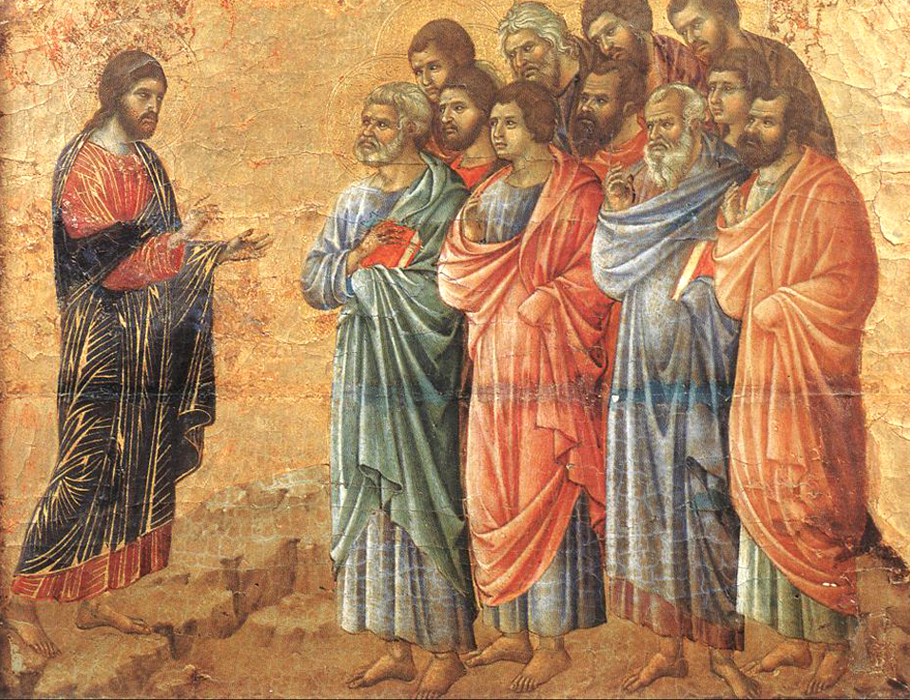
Eleventh station
The Risen Christ entrusts to the disciples the universal mission
From the Gospel according to Matthew (Mt 28,16-20)
Now the eleven disciples went to Galilee, to the mountain to which Jesus had directed them. And when they saw him they worshiped him; but some doubted. And Jesus came and said to them, “All authority in heaven and on earth has been given to me. Go therefore and make disciples of all nations, baptizing them in the name of the Father and of the Son and of the Holy Spirit, teaching them to observe all that I have commanded you; and lo, I am with you always, to the close of the age.”
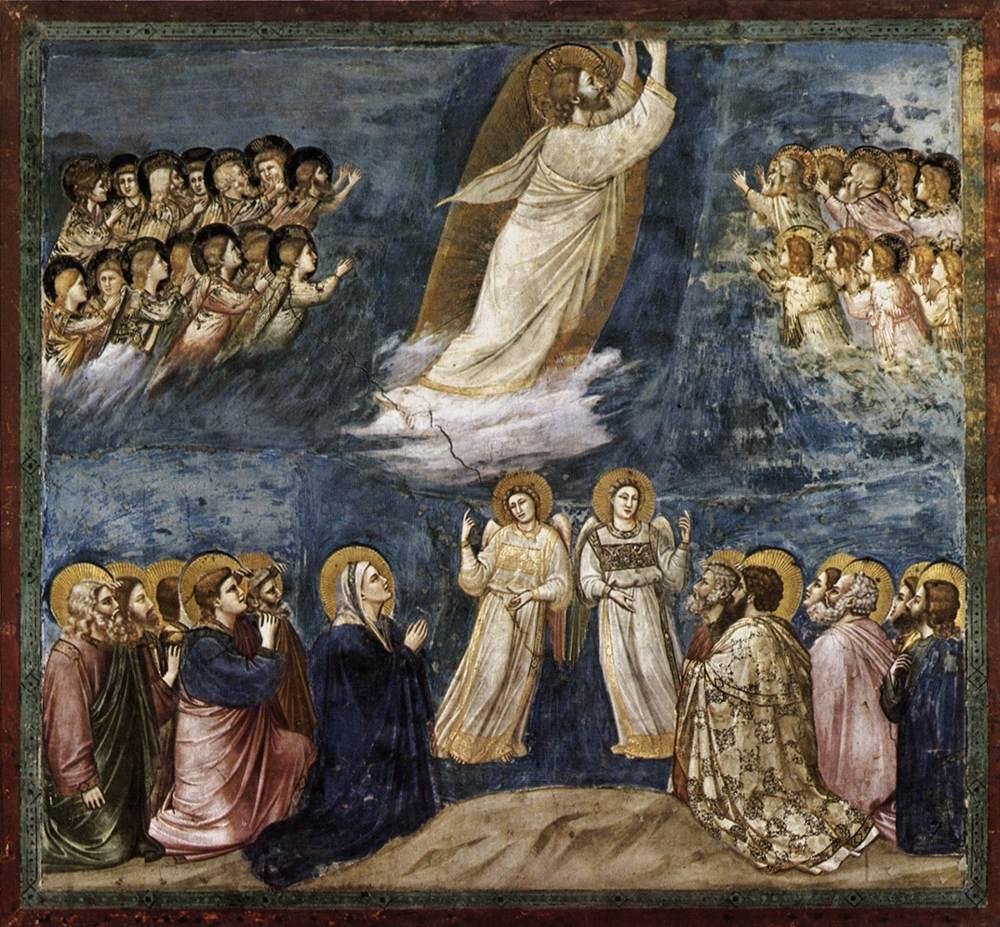
Twelfth station
The Risen Christ ascends Heaven
From the Acts of the Apostles (Act 1,6-11)
So when they had come together, they asked him, “Lord, will you at this time restore the kingdom to Israel?” He said to them, “It is not for you to know times or seasons which the Father has fixed by his own authority. But you shall receive power when the Holy Spirit has come upon you; and you shall be my witnesses in Jerusalem and in all Judea and Samaria and to the end of the earth.” And when he had said this, as they were looking on, he was lifted up, and a cloud took him out of their sight. And while they were gazing into heaven as he went, behold, two men stood by them in white robes, and said, “Men of Galilee, why do you stand looking into heaven? This Jesus, who was taken up from you into heaven, will come in the same way as you saw him go into heaven.”
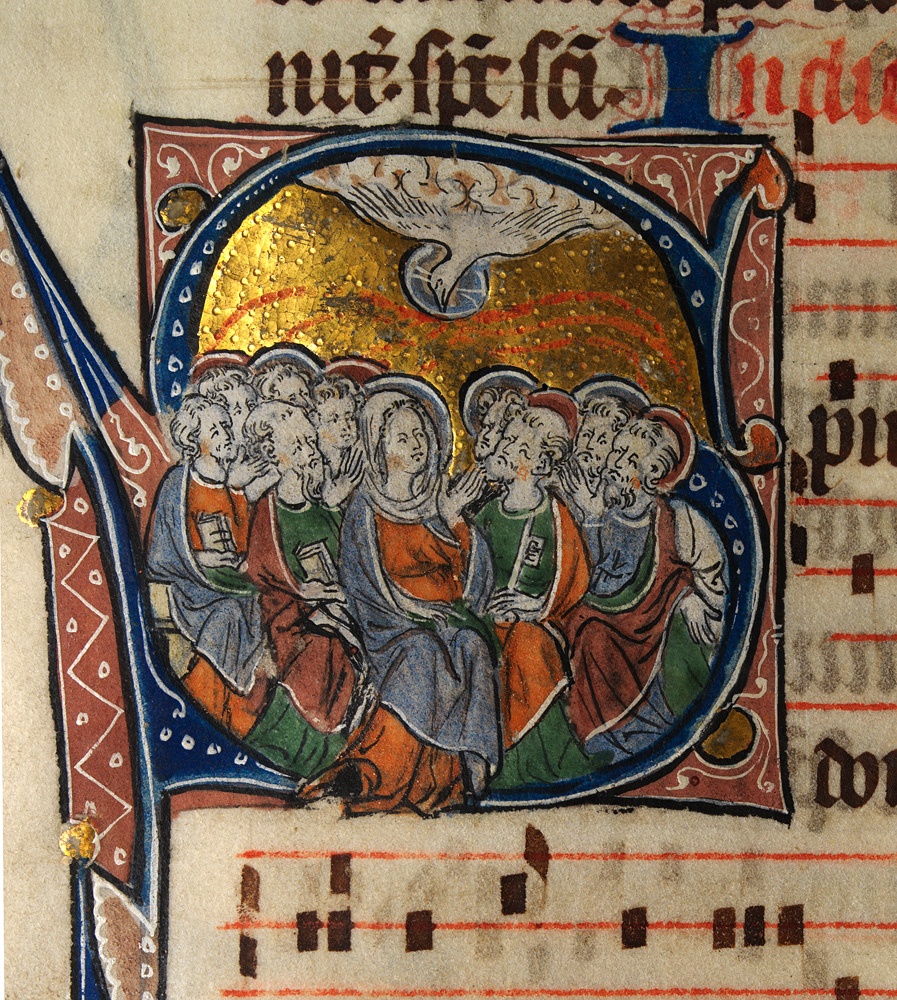
Thirteenth station
Waiting with Mary the Holy Spirit
From the Acts of the Apostles (Act 1,12-14)
Then they (the apostles) returned to Jerusalem from the mount called Olivet, which is near Jerusalem, a sabbath day’s journey away; and when they had entered, they went up to the upper room, where they were staying, Peter and John and James and Andrew, Philip and Thomas, Bartholomew and Matthew, James the son of Alphaeus and Simon the Zealot and Judas the son of James. All these with one accord devoted themselves to prayer, together with the women and Mary the mother of Jesus, and with his brothers.
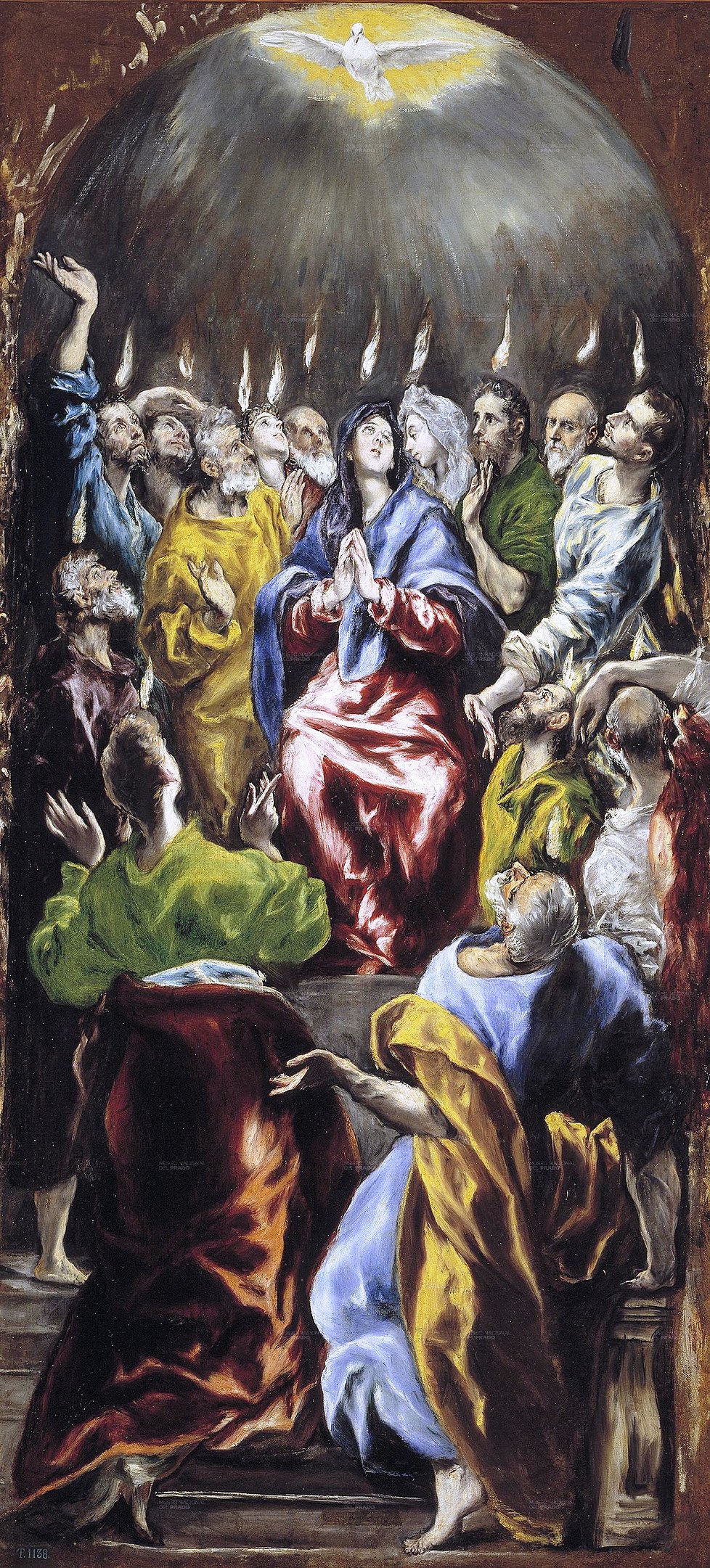
Fourteenth station
The Risen Christ sends the promised Spirit
From the Acts of the Apostles (Act 2,1-6)
When the day of Pentecost had come, they were all together in one place. And suddenly a sound came from heaven like the rush of a mighty wind, and it filled all the house where they were sitting. And there appeared to them tongues as of fire, distributed and resting on each one of them. And they were all filled with the Holy Spirit and began to speak in other tongues, as the Spirit gave them utterance.
Now there were dwelling in Jerusalem Jews, devout men from every nation under heaven. And at this sound the multitude came together, and they were bewildered, because each one heard them speaking in his own language.
